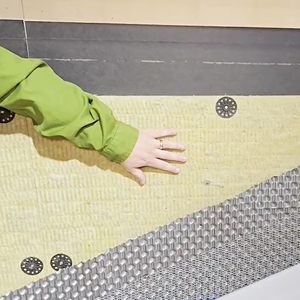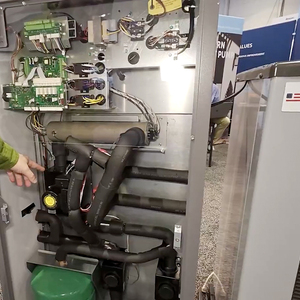I am replacing a tub shower faucet and was wondering what was thought of compression fittings verses soldering the fittings. Also can a compressed fitting be soldered if it starts to leak?
Discussion Forum
Discussion Forum
Up Next
Video Shorts
Featured Story

This 654-sq.-ft. ADU combines vaulted ceilings, reclaimed materials, and efficient design, offering a flexible guest suite and home office above a new garage.
Featured Video
How to Install Exterior Window TrimHighlights
"I have learned so much thanks to the searchable articles on the FHB website. I can confidently say that I expect to be a life-long subscriber." - M.K.
Fine Homebuilding Magazine
- Home Group
- Antique Trader
- Arts & Crafts Homes
- Bank Note Reporter
- Cabin Life
- Cuisine at Home
- Fine Gardening
- Fine Woodworking
- Green Building Advisor
- Garden Gate
- Horticulture
- Keep Craft Alive
- Log Home Living
- Military Trader/Vehicles
- Numismatic News
- Numismaster
- Old Cars Weekly
- Old House Journal
- Period Homes
- Popular Woodworking
- Script
- ShopNotes
- Sports Collectors Digest
- Threads
- Timber Home Living
- Traditional Building
- Woodsmith
- World Coin News
- Writer's Digest


















Replies
I personally do not like compression fittings, and avoid them whenever possible. I like threaded fittings or soldered connections.
Has to do with the number of leaks I've had to repair for each type of connection over the years.
Edited 9/7/2004 3:38 pm ET by csnow
I'm certainly no master plumber, but I've used a fair number of compression fittings over the years out of necessity and the only time I ever had a problem was when I got a Brand X one somehere and the nut cracked and failed (fortunately when there was someone to shut the water off!). Other than that, never had a problem. As to soldering one, I've never needed to but I would guess it isn't possible, at least with any security...
I've used both with sucess....Generally use a compression where it is impossible or dangerous to use a flame.
Also I use compressions when I cannot get the line to drain easily ...usually in the lower area like a crawl. "If it's wet, it doesn't sweat"
A big tip....put a small about of plumbers grease on the thread for the cap...gives better control when tightening down.
I have used one compression fitting in the last 25 years. I believe that they will all seep in time. They simply will not withstand the expansion and contraction of the pipe due to tempature changes. Everytime I find one it has a large ring of crust around it, either white or green, that is caused by seepage. I always cut them out and replace them. And no, I don't use them on valves either.
You will hear of success in automotive and refridgeration use and this is due to the use of softer materials so the farrel can get a better bit as well as some situations allow for a more consistant tempature range. Not in a house in my opinion. DanT
I'm curious Dan... I'm a fairly adept "amateur plumber" . What do you do when you can't get a pipe totally dried out? I've tried the bread trick, and those fancy gel capsules, never had much luck with either...
Paul
What do you do when you can't get a pipe totally dried out?
answer = compression fitting
I did the bread trick a couple of times and got "lucky"...lots of bread to soak up a slow trickle...get set up with torch/flux/clean fittings....long dowel rod..stuff bread and go like hell.
Also risky if the bread doesn't hold long enough and fitting gets wet and cools too fast.
That's what I've always done Lenny, but I was curious if Dan had any better ideas.
There is no majic in that situation. It usually requires patience. Always find the lowest point to drain the water off. Make sure to tighten the shut off valve with a pair of channel locks. I usually tighten it, release it and tighten againt to try and release any sedimate in the valve. If I still have a steady stream of water I try to find a place to cut the pipe that can be held up above level so I can get half of a union soldered on, then a new valve.
If it is a water meter connection disconnect the water meter union at the meter and let it run in a bucket. Same with a pump connection.
Bread will only work if it is real white bread with no crust. Not wheat, not low fat etc. Also the water has to be down to almost a drip. If it is running you almost will never get it done. I have done the bread thing with loaves (yes I said loaves) on 1 1/2" and 3" copper domestic lines years ago on lines in a prison that still trickled water. It will work.
But in residential it really is just patience as there is always somewhere to totally disconnect the source and its just a matter of getting it drained down. DanT
Well, next time Im stumped Ill give those a try...thanks!
I have had good success draining pipes with a wet dry vac, gets them good and dry and sucks water out of the low spots.... now if the shut off valve is leaking i shut off at the meter and disconnect there. You will eventually get all the water out of the system.
james
Compression fittings would be great for plumbing if you used heavy enough copper tubing with them. With the right fittings, the right tubing and good installation technique, I've used them with hot hydrogen to 3000 psig without leaks. Unfortunately the copper tubing used for household sweat soldered joints is too thin for the ferrules to properly swage, which can lead to leaks over time as the others have told you. Add to that the fact that most of the comp fittings sold for plumbing uses are a really cheap design, and you have yet more trouble- especially for hot water lines with the inevitable thermal cycles from hot to cold. That said, there are occasions where comp fittings are tough to avoid.
If you're going to use them, buy a premium quality fitting, make sure the tubing isn't scratched and is properly de-burred, and lubricate the straight thread on the fitting that the nut screws into. But DON'T put teflon tape on it- it's not a tapered sealing thread, and plumber's grease works better as a lube.
I wouldn't recommend trying to solder a leaking compression fitting because you'd have a tough time getting it clean at all points that would need to wick solder for the joint to become permanently leak-tight.
Maybe I am nuts but I have used pipe dope, (white seal or T-5) on comp fittings. If it is old pipe I have put it on the whole shebang, ferrule and threads. Worked for me.
Do comp fittings right and you don't need the dope. On a mis-swaged fitting, dope's just delaying the inevitable. That said, if the tubing's too thin walled, dope may be your only hope- but I'd prefer sweat soldering in that case. Buy good fittings, and check what the fitting mfg recommends as a minimum wall thickness for tubing to make a reliable seal against gases- follow that religiously and you shouldn't go far wrong.
Is the dope on your comp fitting threads doing any harm? Probably not. Acts as a grease, and may stop leakage under the odd shallow scratch on the tubing under the ferrules to. But teflon tape's a definite no-no on straight threads- makes it too easy to cross-thread and strip 'em, or to bugger up a swage. Plumber's grease is plenty good enough. For non-potable services we use anti-seize compound, or with plated anti-seize coatings inside the nut.
WhiteSeal's junk in my experience- Loktite's got several excellent thread sealants for metallic piping and one called "No More Leaks" which we now use instead of WhiteSeal on plastic fittings. If you ever work with NPT threads on PVC or ABS, make sure you use a thread sealant that explicitly says "for use on plastic fittings"! Most of 'em will attack PVC and cause it to split or weld together.
I have heard that the best way to sweat a leaking line is to plug the leak solid by freezing it with dry ice, several feet away from your sweat joint. White bread is easier to find at 8 PM, so I have never actually done it myself. For a (high) price, one can purchase a kit that uses gas in a cannister to freeze the pipe. It works like refrigeration cycle, only the gas escapes. I think the gas is also CO2, so is safe to use this way.
Bill
Dry ice - Wally world... 24/7........
Most 24/7 super markets...
Life is not a journey to the grave with the intention of arriving safely in a pretty and well preserved body, but rather to skid in broadside, thoroughly used up, totally worn out, and loudly proclaiming
WOW!!! What a Ride!
We don't have Wally World, but I'll have to try the local 24-hour place before I need it for real! Thanks for the tip.
Bill
Well here's my story... While I was away at a conference, my wife had her dad come and finish our bathroom in the basement as a surprise when I got home. About two weeks later, I heard the sound of running water. I turned the water off and ran to the hardware store and bought the copper fittings and solder to fix it. A few days later, two more compression fittings started leaking. Back to the hardware store and more fittings but this time I bought enough to replace all compression fittings and have not had a leak since.
sand the pipe as if you were going to solder it this gives the ferrul better bite , learned this trick after spending hours playing with a leak, vaccuum out water with shop vac or blow it out with air compressor , use mpp gas in torch its hotter ( yellow cylinders)